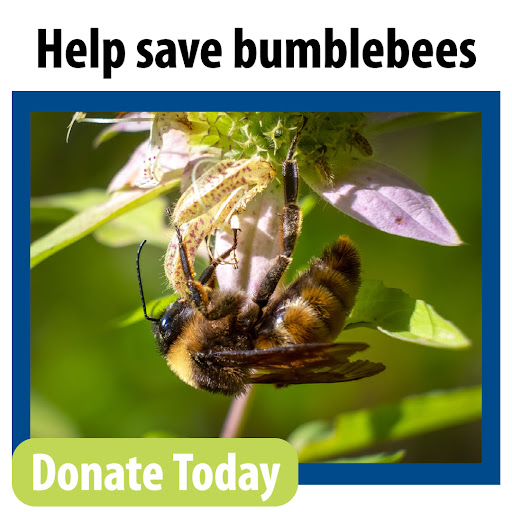

 |
John,
Spring is the busiest time of year for a bumblebee queen.
After awakening from her long, lonely winter hibernation, she quickly sets about pollinating spring wildflowers -- collecting the nectar and pollen necessary to feed her first brood of young.1
But it's increasingly likely she'll bring home more than nutritious nectar. Neonicotinoid pesticides (or "neonics") are the most widely used class of insecticide in the world -- and just a tiny amount can cause permanent brain damage in baby bumblebees.2
These queen bees are in a race against time to save their species. In the past 20 years, the American bumblebee population has plummeted by 90% -- and it's already vanished from eight states.3
It's no great mystery why this is happening. Bumblebees, like all bee species, are being harmed by the widespread use of neonic pesticides. Not only do neonics attack baby bees' brains but they also harm adult bees' ability to learn, navigate and forage for food.4
That's why we're doing everything we can to stop the worst uses of neonics.
We're calling on home garden centers to stop selling these bee-killing pesticides. Already, we've won commitments from Home Depot and Lowe's. And since we know we can't same-day ship a new bee species, we're also calling on Amazon to take neonics off its online shelves.
And we aren't stopping there. We're also urging the Environmental Protection Agency to ban the worst uses of these bee-killing pesticides, and we're urging the Biden administration to reinstate a ban on neonics in wildlife refuges -- the places bees should be safest of all.
But none of this work would be possible without the support of people like you, John. Will you make an Earth Day gift today to make the planet a safer place for bees?
Neonics burst onto the scene in the mid-1990s, and in the years since, they've become the most widely used class of insecticide in the world.5 As a result, our agricultural landscape is now 48 times more toxic to bees than it was just 25 years ago.6
We don't have any time to waste. With our bee populations in freefall, we need to do everything it takes to end the worst uses of these bee-killing pesticides.
This Earth Day, we're not only celebrating the planet -- we're also putting in the hard work needed to protect it. Will you donate to our Earth Day 2023 Drive today to help save the bees from toxic pesticides?
Yes, I'll make my Earth Day gift today.
Thank you,
Ellen Montgomery
1. Kelly Rourke, "The American Bumble Bee (Bombus pensylvanicus)," U.S. Forest Service, last accessed March 28, 2023.
2. Katie Hunt, "Pesticides damage the brains of baby bees, new research finds," CNN, March 3, 2020.
3. Elizabeth Gamillo, "The American Bumblebee Has Nearly Vanished From Eight States," Smithsonian Magazine, October 6, 2021.
4. Katie Hunt, "Pesticides damage the brains of baby bees, new research finds," CNN, March 3, 2020.
5. Thomas James Wood and Dave Goulson, "The environmental risks of neonicotinoid pesticides: a review of the evidence post 2013," National Library of Medicine, June 7, 2017.
6. Stephen Leahy, "Insect 'apocalypse' in U.S. driven by 50x increase in toxic pesticides," National Geographic, August 6, 2019.
Your donation will be used to support all of our campaigns to protect the environment, from saving the bees and protecting public lands, to standing up for clean water and fighting climate change. None of our work would be possible without supporters like you. Environment Colorado may transfer up to $50 per dues-paying member per year into the Environment Colorado Small Donor Committee.
Environment Colorado, Inc.
1543 Wazee St., Suite 400, Denver, CO 80202, (303) 573-3871
Member questions or requests call 1-800-401-6511.
Facebook | Twitter
If you want us to stop sending you e-mail then follow this link -- Unsubscribe